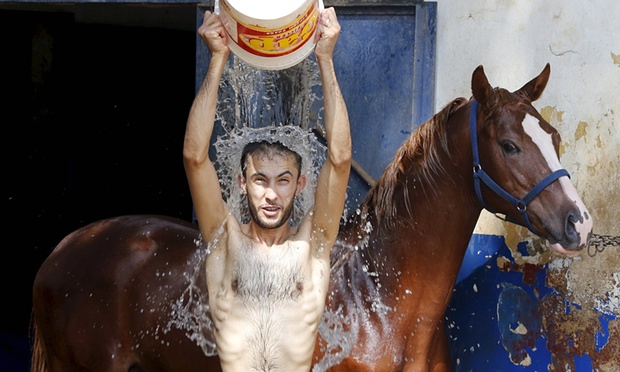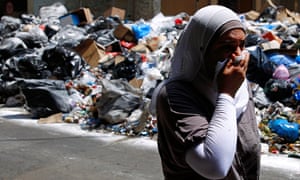
Kareem Shaheen in Beirut
The 30 seconds between the power outage and the generator kicking in feel like a lifetime.
Sweat pools on eyebrows. The anticipation is unbearable. And then the power starts up and the fan blasts cool air across your soaked shirt. The little pleasures in life, all the more enjoyable during a Middle East heatwave.
What follows is usually a scramble through the apartment to ensure the appliances that are turned on won’t trip the measly 5A generator. The AC probably has to go off despite the intense humidity and the still air outside if I want to keep the food in the fridge from rotting. The water heater is a definite no-go, but that’s okay because have you ever tried to shower in the early afternoon during a Middle East summer without sustaining first-degree burns?
The summer heat is oppressive in Beirut’s crowded streets. Sweat sticks to you because of the humidity, making an already crowded metropolis feel much hotter than it actually is. The city struggled last month to deal with a rubbish collection crisis – the government characteristically failed to reach a deal to set up a new landfill, leaving the rubbish to rot in the baking heat for nearly two weeks.
The summers are especially frustrating because of the city’s ailing infrastructure. In Beirut, there are daily scheduled three-hour power cuts (there’s even an app that tells you when it’s happening in your neighbourhood) because the demand for power exceeds the supply year-round. At the height of the summer, these power cuts come every hour, or every two. The norm in some of the poorer areas of the city is the absence of electricity. You could perhaps sleep on the tiles, or on the terrace outside.
As an eternal optimist, I always found the power cuts an opportunity to disconnect. Read a book, meditate, go to the gym, journal. I resisted a generator subscription for a long time.
But then last summer’s scorching heat brought with it days-long power cuts, on top of water shortages after a particularly dry winter. Lebanon has 16 rivers, but efficient water distribution is still elusive here.
Plus, eating all the perishables in the fridge every time there was an extended power cut wasn’t sustainable.
I knew I was surrendering to the mercy of Lebanon’s generator cartels, who profit from the state’s failure. Some generator providers even fired at the power plant of the electricity company in the town of Zahlé when it announced a plan to provide 24-hour electricity to residents.
But I have a home and shelter. Meanwhile, thousands of Syrian children in Beirut roam the streets under the piercing sun – shining shoes and selling street wares, sleeping rough and taking shelter in street corners and under bridges. Thousands of others labour in the agricultural hinterland of the Bekaa Valley under the baking sun, their parents sequestered in plastic tents.
Lebanon has over a million refugees. One out of every five people has fled the war next door in Syria, and the country has almost reached its projected population level for 2050. Its infrastructure has been stretched way past the breaking point.
And the Middle East’s summer lingers.




